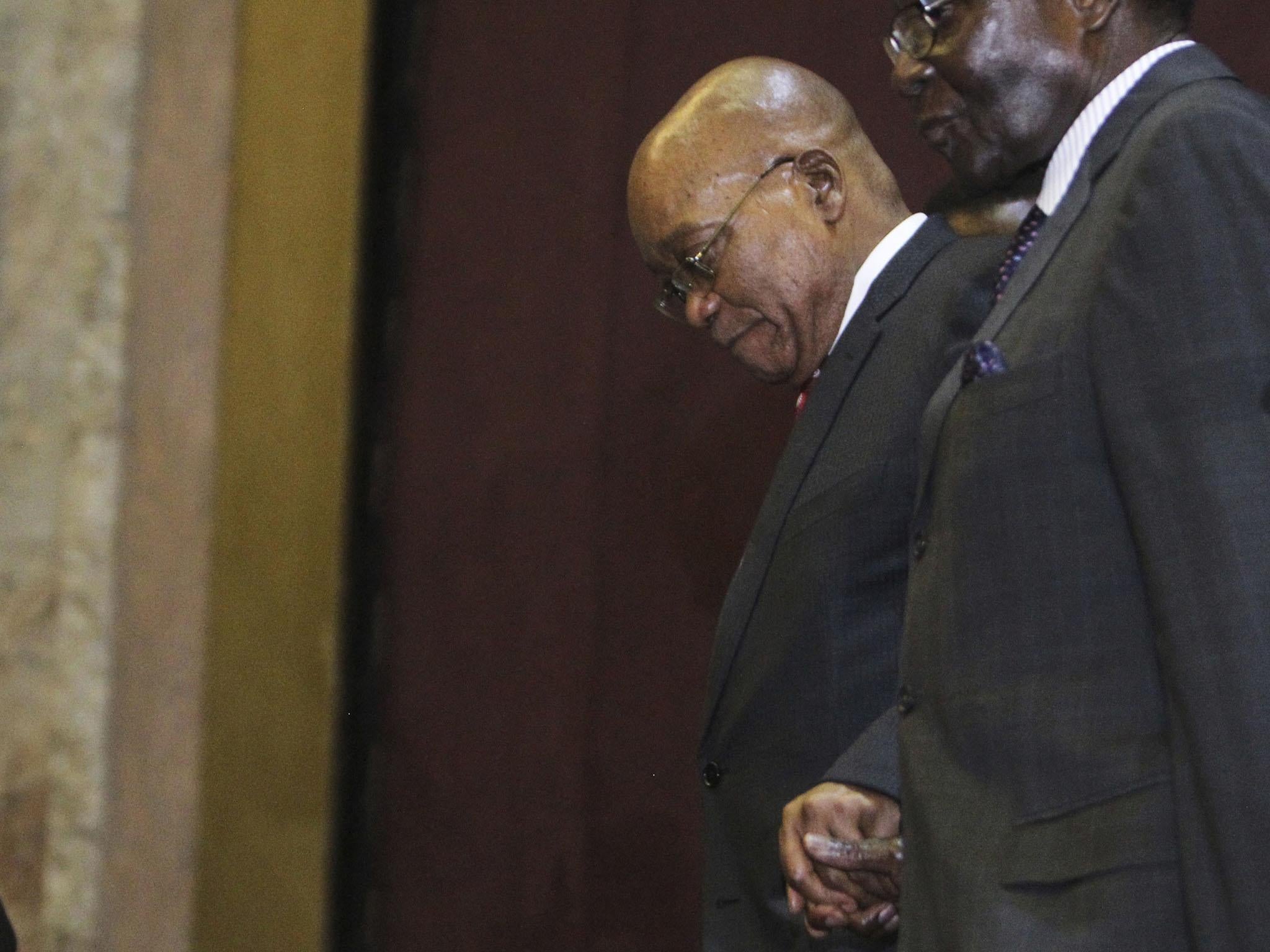Jacob Zuma survives party attempt to oust him as South Africa's President
Despite a series of corruption allegations, the ANC's governing body says it does not support calls for Mr Zuma to step aside

South Africa’s Jacob Zuma has survived an attempt to oust him as President from within his ruling ANC party, officials have told a news conference.
A meeting of the party's National Executive Committee (NEC) over the weekend heard a motion calling for Mr Zuma to be removed from office in the wake of a series of alleged corruption scandals.
There had been speculation in South African media that a vote of no-confidence had taken place and been defeated, as 80 members of the NEC came together for talks over the weekend.
Mr Zuma has been involved in a number of graft investigations since he took office in 2009, and earlier this year a report found “worrying” evidence of illegal influence exerted by the Guptas, a family of businessmen with close ties to the President.
ANC spokesman Zizi Kodwa criticised reporting of the weekend's talks, describing them as normal, end of year discussions and saying no formal vote took place.
But Gwede Mantashe, secretary-general of the ANC’s NEC, confirmed that a call for Mr Zuma to go was made, and that it was debated “without suppression”.
“Following robust, honest, candid and at times difficult discussions, the NEC did not support the call for the President to step down,” he said.
“The NEC resolved it was more urgent to direct the energies of the ANC in its entirety to working towards the unity of the movement,” he added.
Mr Mantashe said the NEC believed the issues of “racism, ethnic nationalism and monopoly capital” were greater threats to the country than what he described as “the negative narrative directed towards the President”.
He called for the party to unite behind Mr Zuma. He said the members agreed during the meetings “that we cannot be strong, unless we work together for unity”.
In the run-up to the debate there had been speculation that the ANC would take a no-confidence vote, and some media even carried rough vote “counts” going in Mr Zuma's favour.
“There was no vote of no confidence in that meeting... There was a call for the President to step down, and that call ultimately was not acceded to after persuasion among comrades in the meeting,” Mr Mantashe said.
“The fact that we have not forced a president of the ANC to step down means that we affirm him as the president of the ANC and President of the republic.”
It means the political uncertainty surrounding Mr Zuma’s fate goes on. The 2 November anti-graft report did not detail the extent of alleged government corruption, only that there was “evidence” some took place. It will be many months before a fuller judicial inquiry can be carried out to investigate the matter in detail.
In the meantime, South Africa’s business community had been hoping for decisive action from the ANC. Upon the news coming out that the NEC had backed the President, the rand fell by as much as 2.5 per cent against the dollar and bonds weakened.
Mr Zuma survived a no-confidence vote in Parliament on 10 November, when ANC leaders backed him and MPs as a whole voted 214 - 126 in his favour.
Earlier this year, he faced another no-confidence vote after the Constitutional Court ruled he had breached the country’s constitution by refusing to repay government money spent on his private home in rural Nkandla. He survived that vote by an even greater margin. Political analysts say he may be weakened by the NEC’s debate this weekend, but that he can only be toppled if ANC leaders withdraw their backing entirely.
Join our commenting forum
Join thought-provoking conversations, follow other Independent readers and see their replies
Comments
Bookmark popover
Removed from bookmarks